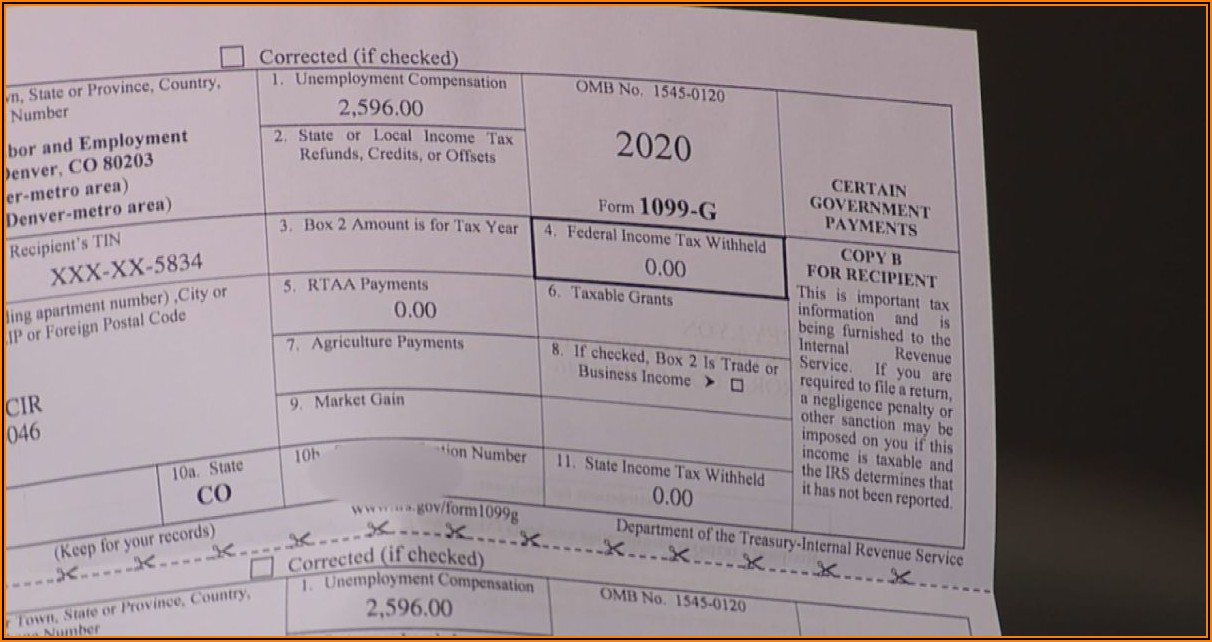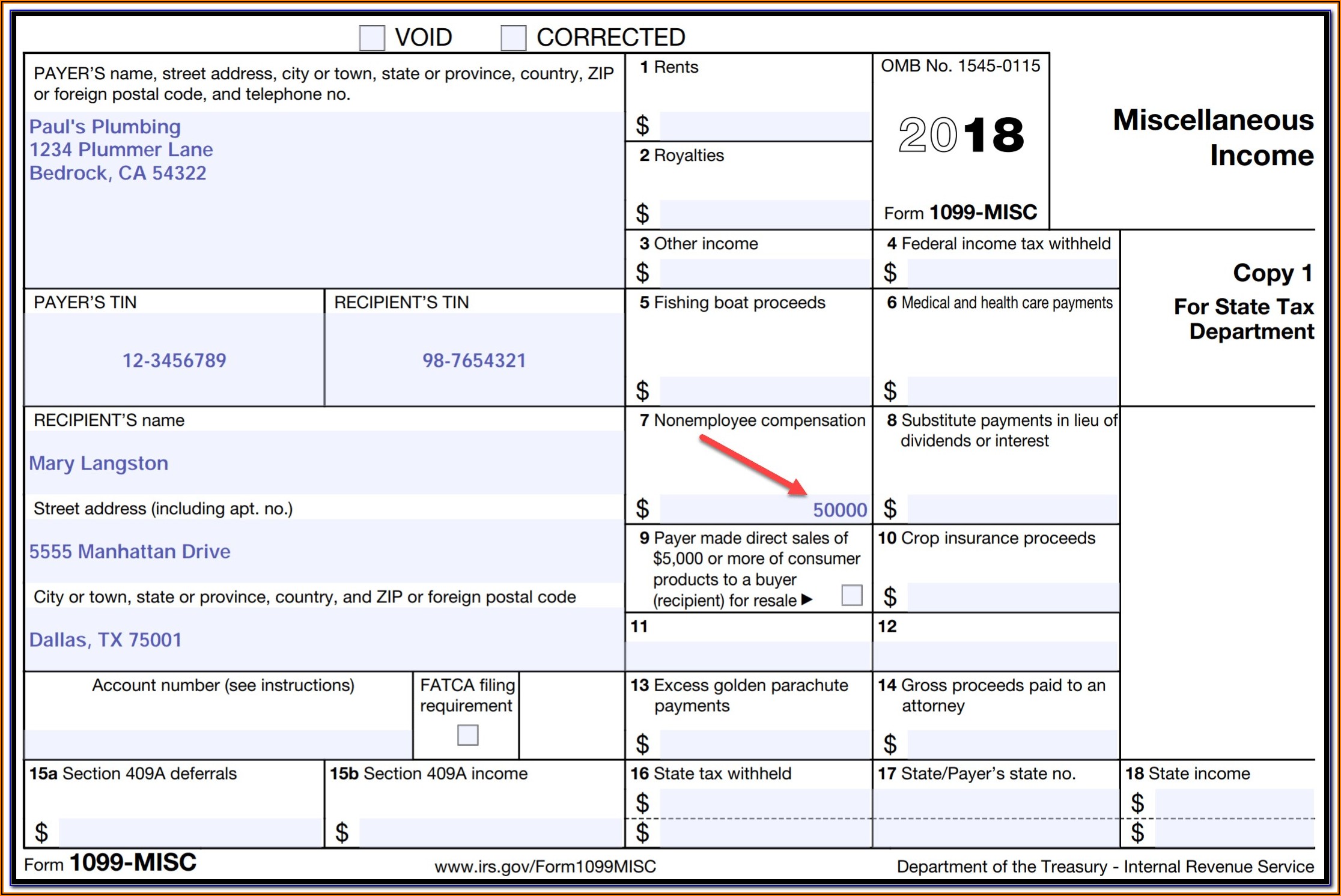When it comes to tax filing in Colorado, understanding the intricacies of the 1099 form is crucial for freelancers, contractors, and businesses alike. The 1099 form Colorado serves as a key document that reports income earned from non-employment sources. Whether you're an independent contractor, a small business owner, or an individual receiving payments for services, knowing how to handle this form correctly can save you from potential tax issues. In this article, we'll delve into the specifics of the 1099 form Colorado, its variations, deadlines, and filing requirements, ensuring you're well-prepared for tax season.
As the gig economy continues to grow, more taxpayers in Colorado find themselves dealing with 1099 forms. Unlike traditional W-2 employees, those who receive a 1099 form are responsible for accurately reporting their income and making estimated tax payments throughout the year. This article aims to demystify the process, offering actionable insights and addressing common questions related to the 1099 form Colorado. By the end, you'll have a clearer understanding of how to navigate this essential tax document.
For many taxpayers, the 1099 form Colorado can seem overwhelming due to its various types and complex filing requirements. However, with the right guidance, you can streamline the process and avoid costly mistakes. Whether you're filing for the first time or need a refresher, this guide will walk you through everything you need to know. From deadlines to deductions, we'll cover it all, ensuring you're fully equipped to handle your tax obligations with confidence.
Read also:Tom Brokaw Speaking Fee A Comprehensive Guide To His Expertise Authority And Influence
What Is the 1099 Form Colorado?
The 1099 form Colorado is a tax document used to report payments made to non-employees, such as freelancers, contractors, and vendors. It's an essential tool for both payers and recipients, as it ensures that all income earned outside traditional employment is properly accounted for during tax season. The IRS and Colorado Department of Revenue require businesses to issue 1099 forms to individuals who receive payments exceeding specific thresholds.
There are several types of 1099 forms, each designed for different types of income. For example, the 1099-NEC is used for reporting non-employee compensation, while the 1099-MISC covers miscellaneous income. Understanding the distinctions between these forms is critical for accurate reporting and compliance. Additionally, the 1099 form Colorado must align with federal guidelines, ensuring consistency in tax reporting across jurisdictions.
Why Is the 1099 Form Colorado Important?
The importance of the 1099 form Colorado cannot be overstated. For recipients, it serves as proof of income, which is necessary when filing state and federal taxes. For businesses, it ensures compliance with tax regulations and helps avoid penalties for underreporting payments. Failing to issue or file a 1099 form Colorado correctly can lead to significant consequences, including fines and interest charges.
Moreover, the 1099 form Colorado plays a vital role in maintaining transparency in financial transactions. It helps the IRS and state authorities track income accurately, ensuring that all parties meet their tax obligations. By understanding the purpose and significance of this form, taxpayers can better prepare for tax season and avoid unnecessary complications.
How Do You File the 1099 Form Colorado?
Filing the 1099 form Colorado involves several steps, starting with gathering all necessary information and ensuring accuracy. First, businesses must collect the recipient's taxpayer identification number (TIN) using Form W-9. Once the TIN is verified, the payer can proceed to complete the 1099 form Colorado, including details such as the recipient's name, address, and total payment amount.
After completing the forms, businesses must send copies to recipients and the IRS by the specified deadlines. For paper filings, the deadline is typically February 1st, while electronic filings must be submitted by March 31st. It's essential to adhere to these deadlines to avoid late-filing penalties. Additionally, recipients should verify the accuracy of their 1099 forms and report any discrepancies to the payer promptly.
Read also:Otis Williams Height A Closer Look At The Life And Career Of A Musical Legend
What Are the Different Types of 1099 Forms in Colorado?
In Colorado, taxpayers may encounter various types of 1099 forms, each tailored to specific types of income. The most common forms include:
- 1099-NEC: Non-Employee Compensation
- 1099-MISC: Miscellaneous Income
- 1099-DIV: Dividends and Distributions
- 1099-INT: Interest Income
- 1099-R: Distributions from Retirement Plans
Each form has unique requirements and reporting criteria, making it essential for taxpayers to understand which form applies to their situation. For instance, freelancers and contractors will typically receive a 1099-NEC, while individuals receiving interest income from bank accounts may receive a 1099-INT. Proper identification and classification of income types ensure accurate reporting and compliance with tax laws.
How Can You Avoid Common Mistakes with the 1099 Form Colorado?
Mistakes on the 1099 form Colorado can lead to penalties, delays, and unnecessary stress during tax season. Some common errors include incorrect recipient information, miscalculated payment amounts, and missed deadlines. To avoid these pitfalls, businesses should:
- Verify recipient details using Form W-9
- Double-check payment amounts for accuracy
- Submit forms by the required deadlines
- Utilize electronic filing whenever possible
Additionally, recipients should review their 1099 forms carefully and report any discrepancies to the payer immediately. By taking proactive steps, both parties can ensure a smoother filing process and minimize the risk of errors.
What Should You Do If You Receive a 1099 Form Colorado Late?
Receiving a 1099 form Colorado late can disrupt your tax preparation timeline, but it doesn't have to cause panic. If you receive your form after the filing deadline, you should still include the reported income on your tax return. To avoid penalties, contact the payer to confirm the accuracy of the form and request an expedited copy if necessary. In some cases, you may need to file an amended return if the late form affects your previously filed taxes.
Who Needs to File a 1099 Form Colorado?
Businesses and individuals who make payments to non-employees exceeding certain thresholds must file a 1099 form Colorado. This includes payments for services, rents, royalties, and other forms of income. The IRS requires businesses to issue 1099 forms to recipients and file copies with the IRS and state authorities. By understanding your obligations, you can ensure compliance and avoid penalties.
Can You File the 1099 Form Colorado Electronically?
Yes, businesses can file the 1099 form Colorado electronically, which offers several advantages over paper filing. Electronic filing reduces the risk of errors, speeds up processing times, and provides confirmation of receipt. To file electronically, businesses must use IRS-approved software or services. Additionally, electronic filing is mandatory for businesses issuing more than 250 forms annually, making it a convenient and efficient option for most taxpayers.
What Happens If You Don't File the 1099 Form Colorado?
Failing to file the 1099 form Colorado can result in significant penalties and interest charges. The IRS imposes fines for late or missing filings, with penalties increasing based on the delay's duration. Additionally, recipients may face challenges in accurately reporting their income, leading to potential audits or penalties for underreported earnings. To avoid these consequences, businesses should prioritize timely and accurate filing of 1099 forms.
Conclusion: Preparing for Tax Season with the 1099 Form Colorado
The 1099 form Colorado is a critical component of tax reporting for freelancers, contractors, and businesses. By understanding its purpose, types, and filing requirements, taxpayers can ensure compliance and avoid unnecessary complications. Whether you're a payer or recipient, taking the time to prepare and verify your forms will save you time and money in the long run. With the right approach, you can navigate the 1099 form Colorado with confidence and ease.
Table of Contents
- What Is the 1099 Form Colorado?
- Why Is the 1099 Form Colorado Important?
- How Do You File the 1099 Form Colorado?
- What Are the Different Types of 1099 Forms in Colorado?
- How Can You Avoid Common Mistakes with the 1099 Form Colorado?
- What Should You Do If You Receive a 1099 Form Colorado Late?
- Who Needs to File a 1099 Form Colorado?
- Can You File the 1099 Form Colorado Electronically?
- What Happens If You Don't File the 1099 Form Colorado?
- Conclusion: Preparing for Tax Season with the 1099 Form Colorado


